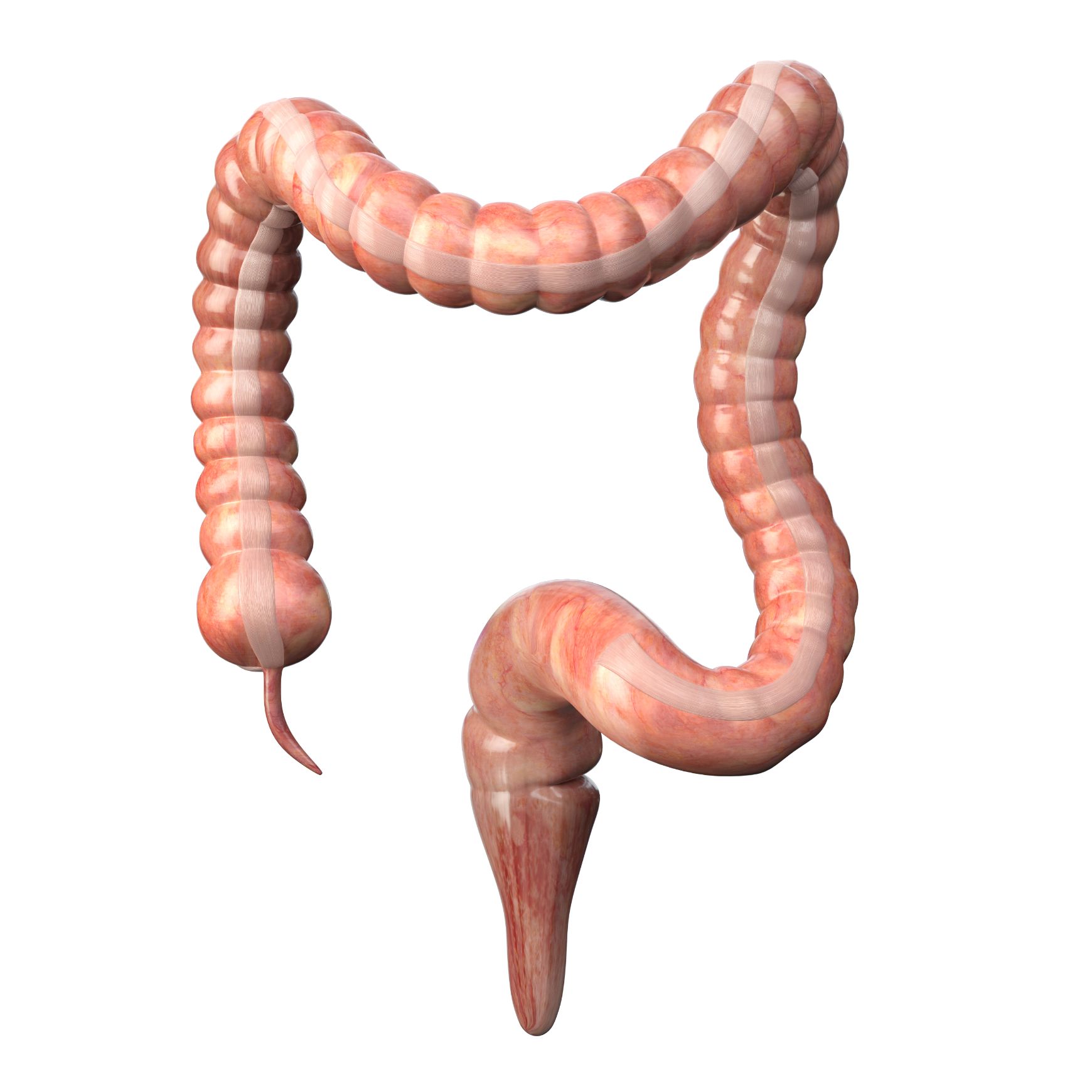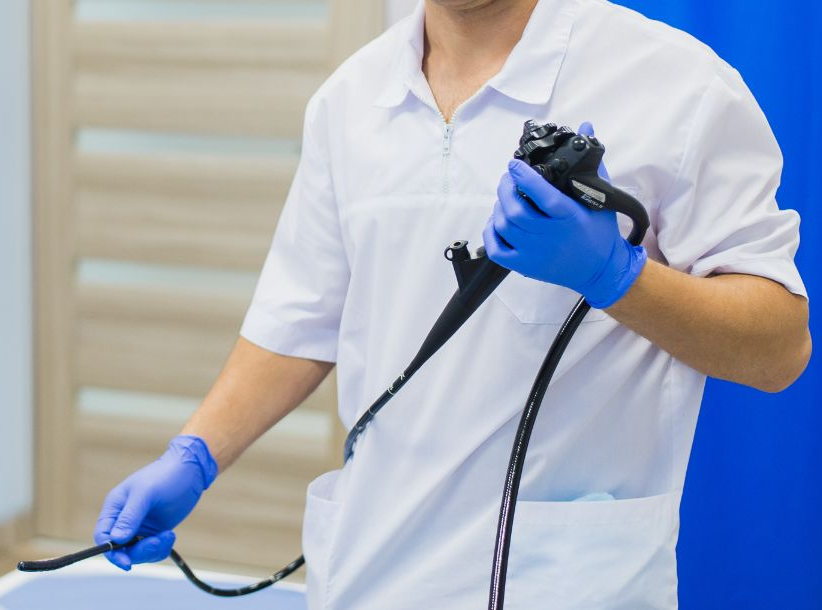
What is a colonoscopy?
A colonoscopy is a routine screening test recommended in Australia for all adults over the age of 50 to help screen for and to prevent colon cancer.
CR Sydney’s experienced colorectal surgeon and colonoscopist Dr Ewan Macdermid will perform a colonoscopy to look for changes in the cells of the colon (large intestine), as well as bleeding and colon growth (polyps) which can become cancerous.
This depends on the type of polyp but as a general guide
– Polyps less than 1cm have a 1% risk of cancer, while polyps larger than 2cm have a 50% risk of cancer.
– Large polyps may require more than one treatment, and in some patients surgery could be required for complete removal.
– If you have an increased risk for colon polyps, talk with the CR Sydney team about the types and frequency of tests that will be best for you.
Outside of bowel cancer and polyps colonoscopies can also be used to help diagnose:
- Crohn’s Disease
- Microscopic Colitis
- Ulcerative Colitis
- Anal fissures
- Diverticulosis
- Haemorrhoids
- Inflammatory Bowel Disease
- Ulcers

Colonoscopy should be performed within 30 days for symptoms such as:
- Bleeding from the rectum
- Positive faecal occult blood test
- Changes in normal bowel habits such as unexplained diarrhoea or unusual constipation
- Blood in the stools
- Unexplained weight loss
- A feeling that the bowel doesn’t empty property
- Unexplained iron deficiency
A colonoscopy is a quick and generally painless day hospital procedure.
Under a general anaesthetic, a long, flexible tube will be inserted into the rectum, allowing for full examination of the entire inner lining of your bowel (colon and rectum).
A tiny video camera at the end of the tube will allow for a view of the entire colon.
During this 30 minute procedure , Dr MacDermid will look for any abnormalities in the bowel lining and remove any polyps which will be sent to pathology for analysis.
Someone will need to collect you in the afternoon as patients are not permitted to drive after anaesthetic.
Before you have your colonoscopy it is important that you have a thoroughly emptied bowel.
Please read your Colonoscopy Preparation at least ONE WEEK before your procedure.
The procedure poses few risks, but rarely complications may include:
- Adverse reaction to the anaesthetic – very rare
- Bleeding from the site where a tissue sample was taken
- A tear in the colon or rectum wall – rare
- Pain after the procedure for a few days especially if haemorrhoids were removed – common
Generally the procedure has a good safety profile with complications for routine colonoscopy impacting 1.6% of all patients.
At what age should you get your first colonoscopy?
Faecal immunochemical testing (FIT) is now recommended for people over the age of 50 in Australia.
This is the government’s screening test for asymptomatic individuals with no family history of colorectal cancer.
If you have a positive FIT the Department of Health recommends a colonoscopy performed within 30 days. However, patients of any age with rectal bleeding, abdominal pain, unexplained weight loss or changes to their bowel habit should see their doctor to talk about having a colonoscopy.
The FIT test is to be performed at 50 AND every two years after until the age of 74 years.
Individuals with a family history of colorectal cancer will need appropriate risk stratification.
Find out more about bowel cancer screening guidelines here.
People who have one relative diagnosed with bowel cancer at age 55 years or older, should be screened from age 45.
People with bowel symptoms such as rectal bleeding or a change in bowel habits should seek a colonoscopy within 30 days.
What are the Medicare item numbers for private health insurance for colonoscopy?
Medicare item numbers for these procedures are 32222, 32223, 32224, 32225 and 32226.
Please check with your private health fund to confirm eligibility.
The Medicare rebate will only been paid if there are approved intervals between colonoscopies.
The Faecal Immunochemical Test is a free screening test to detect bowel cancer in people who do not have any symptoms.
FIT is recommended every 2 years from age 50 and valid Medicare holders should expect a letter advising of the test around their 50th birthday.
Any positive test result should be followed up with a colonoscopy within 30 days.
However remember the FIT is a screening test only, not a diagnostic test.
If you have ANY worrying bowel symptoms for more than two weeks, such as a persistent change in your bowel habits (diarrhoea or constipation), blood in the stool or abdominal pain ask your GP for a prompt referral for a colonoscopy.
Do not wait to do the FIT – always act on these symptoms.
Having said that, FIT can help pick up early cancer when blood leaks from tumours, so it’s important to do this every two years as well.
The lifetime risk of polyps is about 1 in 4 in the 40-50 age group and roughly 1 in 3 in the over 60s.
Most bowel polyps will not turn into cancer, but they should be monitored and removed if found.
Bowel cancer is Australia’s second biggest cancer killer, causing 15,000 deaths per year.
Acting on symptoms improves outcomes. Unfortunately long waits in the public system for a colonoscopy can reduce survival times, according to one Australian study of more than 1000 stage IV Victorian cancer patients. This study showed that privately insured patients were more likely to have longer survival outcomes than public patients by about eight months.
Not all polyps are the same.
While polyps are usually harmless (benign); they can be cancerous or pre-cancerous too.
There are generally two types of polyp shapes – (sessile), which are flatter and harder to detect.
And the other more obvious polyp is (pedunculated), or has a stalk and looks more like a mushroom.
Outside of polyp shape there are also different types of polyps.
Adenomatous Polyps
(Tubular Adenoma)
These small, common polyps are very low risk for cancer.
Thes most commonly occur in people who have inflammatory bowel disease (IBD).
These types of polyps are also known as pseudopolyps because they are not true polyps, but rather develop as a reaction to chronic inflammation in the colon. Inflammatory polyps are benign and generally do not carry the risk of developing into colon cancer.
Villous Adenoma
(Tubulovillous Adenoma)
Complex polyps (sometimes referred to as “defiant polyps” in the medical literature) are those polyps that possess one of the following features: size greater than 2 centimeters, in a location unfavorable or too sessile for removal by more straightforward techniques. Or they may be polyps that the doctor performing the procedure does not feel they can safely remove. Often these polyps require resection (removal) of the large bowel.
